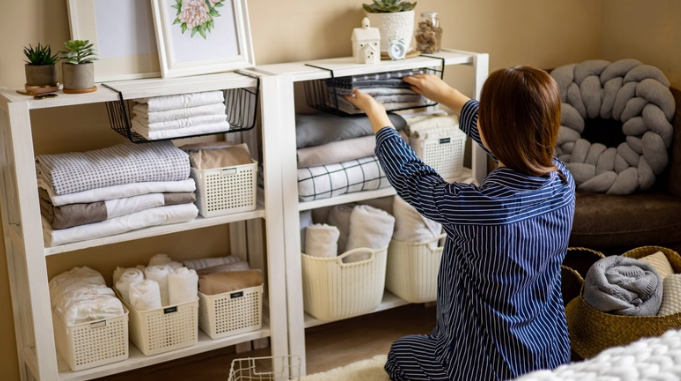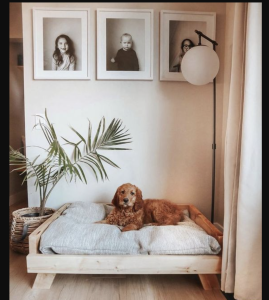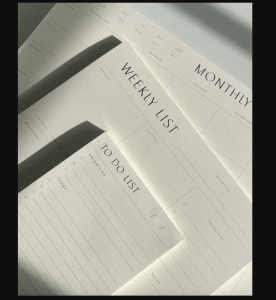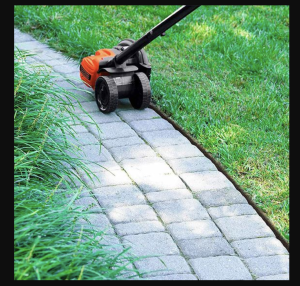A clutter-free and organized home is not just visually appealing; it can also significantly reduce stress and enhance your overall well-being.
However, achieving and maintaining such a home can be a challenge for many. In this guide, we’ll explore common struggles related to organizing, how they affect you both financially and emotionally, and provide practical solutions to help you create a stress-free living space.
Now, let’s delve into these common challenges and discover how you can overcome them with ease.
At My Home Wizard, we understand the importance of a tidy home, and we’re here to assist you on your journey to a more organized life.
Do these Organizing Struggles Sound Familiar?
Life has a way of accumulating possessions and responsibilities, often leaving us in a constant battle with clutter and disarray.
The desire for an organized living space is universal, yet many of us find ourselves grappling with common struggles when it comes to organizing.
These challenges can range from a lack of time to overwhelming feelings of chaos. In this section, we’ll explore these common hurdles and provide insights into overcoming them effectively.
Lack of Time:
In today’s fast-paced world, finding time to declutter and organize can be a daunting task. Many individuals lead busy lives, juggling work, family, and other commitments, leaving little room for organizing efforts.
For example, a working parent may struggle to find time between their job, childcare responsibilities, and other daily tasks to tackle organizing projects.
This struggle often results in delayed or neglected organization projects, leading to even more chaos over time. The clutter continues to accumulate, making it even harder to address when time eventually becomes available.
Overwhelm:
Clutter and disorganization can lead to feelings of overwhelm and stress. When every corner of your home feels chaotic, it can affect your mental well-being.
Imagine coming home to a cluttered living room with piles of unopened mail, toys strewn across the floor, and no clear surface to prepare dinner.
The constant visual reminder of unfinished organizing tasks can contribute to anxiety and decreased productivity.
You may find it challenging to relax or focus on other important aspects of your life when your environment is in disarray.
Space Limitations:
Those living in smaller homes or apartments face unique challenges when it comes to organization. Limited space can quickly become overcrowded with belongings. \
For instance, someone residing in a studio apartment may struggle to find storage for their clothing, kitchen supplies, and personal items.
Small living areas may not have the luxury of dedicated storage areas, making it challenging to find suitable places for your possessions.
As a result, items often end up in piles or scattered around the living space.
Hoarding Tendencies:
For some, the struggle with clutter goes beyond disorganization and enters the realm of hoarding.
This psychological challenge can be particularly difficult to overcome. Hoarding tendencies often lead to severe clutter issues, which can negatively impact both living conditions and mental health.
Consider a scenario where someone has difficulty discarding even the most trivial items, accumulating stacks of newspapers, old clothing, and miscellaneous objects.
These hoarded items can eventually take over their living space, posing fire hazards and health risks.
How These Struggles Affect You
These common struggles with organizing can have significant consequences, affecting you both financially and emotionally:
Financial Impact:
Delaying or neglecting organization projects can result in wasted money. For example, imagine misplacing important documents or forgetting about items you already own due to clutter.
You may end up repurchasing items, such as kitchen utensils or tools, which you already had but couldn’t locate.
Additionally, disorganization can lead to late bill payments, incurring unnecessary fees. Forgetting to pay bills on time because they got lost in a sea of paperwork can strain your finances.
Emotional Toll:
The constant stress of living in a cluttered environment can take a toll on your mental health. It may lead to increased anxiety, decreased focus, and a general sense of unease.
The feeling that your home is always in disarray can contribute to emotional exhaustion.
Over time, this emotional burden can affect your overall quality of life.
For instance, the stress of a cluttered home can spill over into your work life, relationships, and overall sense of well-being.
Ending Home Disorganization Once and for All
Time Management Techniques:
To address the lack of time, consider implementing time management techniques specifically for organizing.
Daily Decluttering Ritual: Dedicate a specific time each day, even if it’s just 15-30 minutes, to declutter a part of your home. For instance, make it a habit to declutter your desk before starting work each morning.
Weekly Organizing Sessions: Set aside a few hours every weekend to focus on larger organizing projects. This could include cleaning out a closet, sorting through your wardrobe, or decluttering your garage.
Time Blocking: Utilize time blocking techniques to allocate dedicated time slots for organizing tasks in your weekly or monthly calendar. Treat these appointments with the same importance as other commitments.
Task Prioritization: Identify the areas in your home that require immediate attention and prioritize them. For example, if your kitchen is in disarray, start there before moving on to less critical spaces.
One Room at a Time: Instead of attempting to organize your entire home in one go, break it down by tackling one room at a time. This focused approach allows you to make meaningful progress without feeling overwhelmed.
Use a Timer: Consider using a timer, like the Pomodoro technique, to work in short, concentrated bursts. Set the timer for 25 minutes of decluttering followed by a 5-minute break. Repeat this cycle as needed.
Digital Reminders: Leverage digital tools and apps to set reminders for your organizing sessions. These reminders can help you stay on track and ensure you don’t forget your scheduled decluttering time.
Accountability Partner: Partner with a friend or family member who shares your organizing goals. Having someone to hold you accountable can provide motivation and make the process more enjoyable.
Delegation: If possible, delegate organizing tasks to family members or roommates. Sharing the workload can significantly reduce the time and effort required to maintain an organized home.
Stress Reduction Methods:
To tackle the stress that often accompanies organizing, consider incorporating these stress-reduction methods into your daily routine. By integrating practices like mindfulness and taking short breaks, you can create a more soothing and manageable organizing experience.
Mindfulness Meditation: Dedicate a few minutes each day to mindfulness meditation. Focus on your breath, clear your mind, and be present in the moment. Mindfulness can help alleviate stress and promote calmness.
Deep Breathing Exercises: Whenever you feel overwhelmed during organizing, pause and practice deep breathing. Inhale slowly through your nose, hold for a few seconds, and exhale through your mouth. Deep breathing can regulate your nervous system and reduce stress.
Visualization Techniques: Before starting an organizing task, visualize the end result—a clean and organized space. This mental imagery can provide motivation and ease anxiety.
Progress Celebrations: Acknowledge your achievements during organizing. When you finish a task or area, take a moment to celebrate your progress. This positive reinforcement can boost confidence and lower stress.
Nature Breaks: If possible, take short breaks outdoors in nature. Spending a few minutes in a garden, park, or on your balcony can refresh your mind and reduce stress.
Aromatherapy: Create a calming atmosphere with aromatherapy. Consider using essential oils like lavender or chamomile, known for their relaxation properties. Diffusing these oils in your organizing space can enhance the soothing effect.
Guided Relaxation: During breaks, listen to guided relaxation or meditation recordings. Various apps and online resources offer guided sessions designed to reduce stress and induce relaxation.
Journaling: Keep a journal to express your thoughts and feelings during organizing. Writing about challenges, progress, and achievements provides an emotional outlet and reduces stress.
Stretching Exercises: Integrate gentle stretching into your breaks. Stretching releases muscle tension, leaving you feeling more relaxed and focused.
Positive Affirmations: Counter negative thoughts with positive affirmations. Repeat phrases like “I am making progress” or “I can handle this” to boost your confidence and lower stress levels.
Incorporating these stress-reduction techniques into your daily routine and organizing sessions can enhance your overall well-being and make the process more enjoyable.
Small Space Organization:
Living in a smaller space?
Don’t worry; there are smart strategies to make the most of every inch. Small space organization is all about maximizing functionality without sacrificing style.
Here are some practical tips to help you get started:
Space-Saving Furniture: Invest in furniture pieces designed with storage in mind. Consider a bed with drawers underneath, a sofa that doubles as a guest bed, or a coffee table with hidden compartments. These multi-functional pieces can help you declutter and optimize your space.
Vertical Storage: Make use of your vertical space by installing shelves and hooks on your walls. Wall-mounted shelves can hold books, plants, or kitchen essentials, freeing up valuable floor space. Hooks are perfect for hanging bags, hats, or accessories.
Closet Organizers: Maximize your closet’s potential by adding shelves, drawers, and organizers. A well-organized closet can hold more than you might think and make it easier to find what you need.
Under-the-Bed Storage: Utilize the space under your bed for storage. Invest in under-bed storage bins or drawers to keep items like off-season clothing, shoes, or bedding neatly tucked away.
Foldable Furniture: Consider furniture that can be folded or collapsed when not in use. Folding chairs, tables, and wall-mounted desks are excellent options for small spaces. They provide functionality when needed and can be stowed away when you want to free up space.
Remember, small space organization isn’t just about making your space look tidy; it’s about creating a more functional and enjoyable living environment.
By incorporating these strategies, you can maximize your space’s potential and make the most of every square foot.
More Organizing Hacks Just for You
One size doesn’t fit all when it comes to organizing. Tailoring your approach to your unique needs and lifestyle can make a world of difference in maintaining an organized home.
Personalized Strategies:
Assess Your Routine: To create a personalized organizing plan, begin by closely examining your daily routines and habits. Take note of the activities you engage in most frequently within your living space.
Identify Priority Areas: Consider which areas of your home are most important for your daily activities. If you work from home, for instance, your home office or workspace becomes a top priority.
Efficient Storage Solutions: Once you’ve pinpointed these priority areas, focus on finding efficient storage solutions. In the context of a home office, this might mean investing in shelves, cabinets, or desk organizers that cater to your specific work-related items. The goal is to create a workspace that not only looks tidy but also functions seamlessly to support your work tasks.
Declutter Accordingly: Customize your decluttering efforts to align with your unique needs. Clear out items that are irrelevant to your daily routines and work. Keep only what’s necessary and useful for your personal and professional life.
Adaptability: Your customized plan should be adaptable. As life changes, so can your organization strategies. Be open to adjustments that better suit your evolving needs.
Digital Inventories:
Comprehensive Cataloging: Digital apps enable you to create comprehensive inventories of your possessions. This is particularly beneficial for items that are stored away or those with sentimental or monetary value.
Visual Records: Many digital inventory tools allow you to attach photos or descriptions to each item. This visual reference can be invaluable, especially when you need to locate something in storage or verify the condition of your belongings.
Remote Access: Digital inventories can often be accessed remotely via smartphones or computers. This means you can check your inventory even when you’re away from home, which is especially useful for insurance purposes or when shopping for new items.
Set Reminders:
Task Management: Apps like “Tody” and others are excellent for task management within your organization goals. You can assign deadlines to various cleaning and organizing tasks, ensuring that nothing falls through the cracks.
Customizable Schedules: These apps often allow you to customize your schedules based on your preferences and the urgency of specific tasks. For example, you might set a reminder to deep clean your kitchen every two weeks while scheduling daily reminders for smaller tasks like tidying up.
Motivation and Accountability: Reminders act as a form of motivation and accountability. When you receive notifications prompting you to complete tasks, you’re more likely to follow through, resulting in a consistently organized living space.
Reduced Mental Load: Digital reminders also alleviate the mental load of trying to remember all your organizing tasks. Instead of relying solely on memory, you can rely on your digital assistant to keep you on track.
Progress Tracking: Many apps allow you to track your progress over time. This can be incredibly satisfying as you witness your accomplishments and see how your efforts contribute to a more organized home.
Decluttering and organizing your home is not just a chore; it’s an investment in your well-being and peace of mind.
By addressing common struggles, understanding their financial and emotional impact, and implementing practical and unique solutions, you can transform your living space into a stress-free sanctuary.
At My Home Wizard, we’re dedicated to helping you on your journey to a more organized life.
Our team of experts is ready to assist you in creating a home that reflects your unique lifestyle and needs.
Whether you’re seeking personalized organizing plans, digital organization tools, or virtual organizing services, we’re here to support you every step of the way.
Say goodbye to the chaos and stress of a cluttered home and say hello to the tranquility and efficiency of a well-organized space.
Contact My Home Wizard today and let us help you achieve the home of your dreams.
